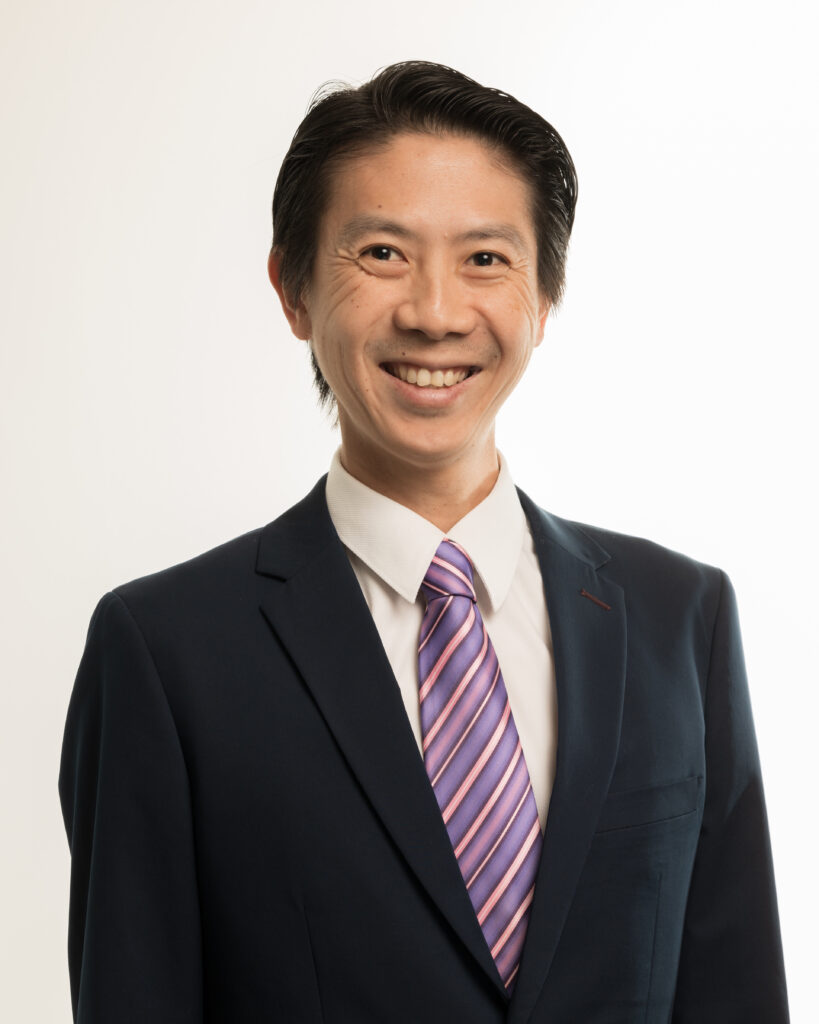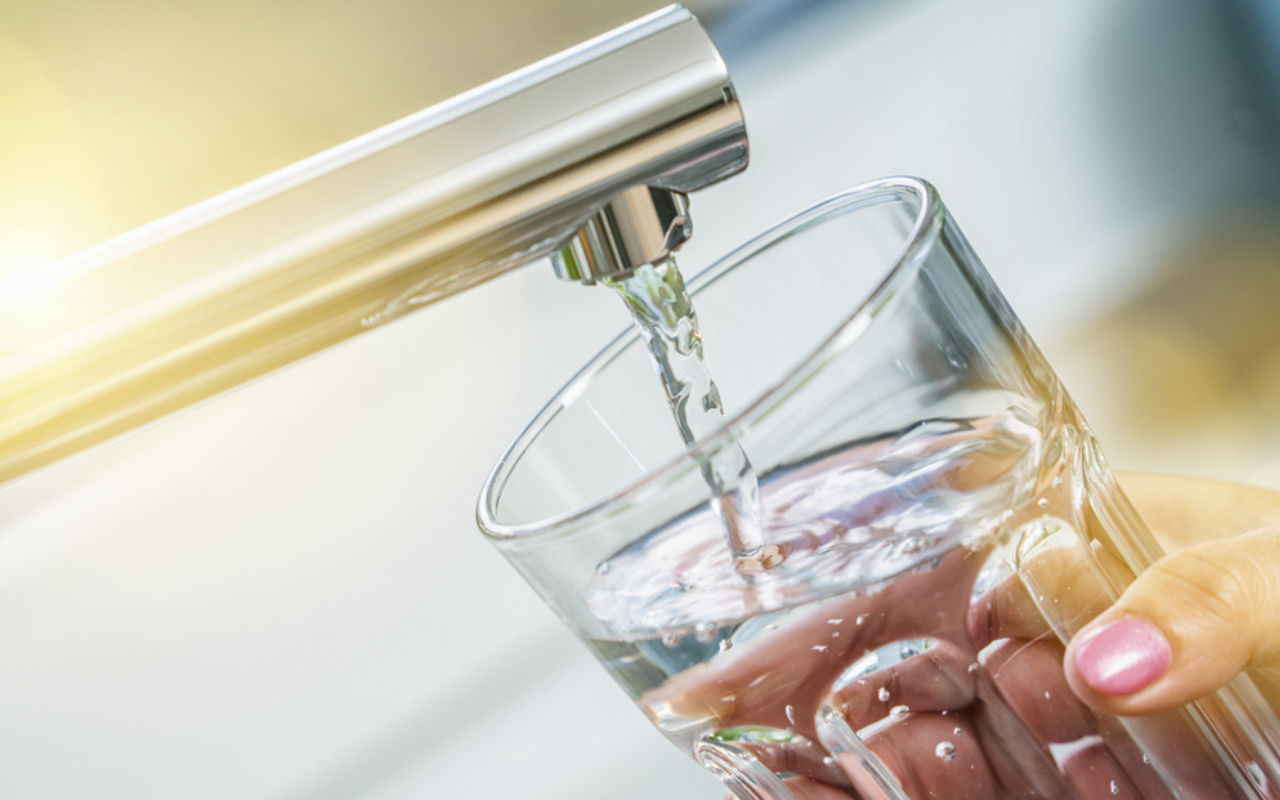A decision to hand over water fluoridation decisions to local councils in Queensland a decade ago has resulted in more than a million Queenslanders having less access to fluoridated water, putting them at a greater risk of dental disease.
New research, published in the Medical Journal of Australia, has found a 2012 decision to devolve responsibility for water fluoridation decisions and funding from the Queensland Government to local councils has put people at even greater risk of dental decay.
As a result of the decision, 51 out of 77 local government areas in Queensland do not have fluoridated water (here), affecting 1 050 799 people.
The research, co-authored by Christopher Sexton, a biostatistician at The University of Queensland, found a strong association between socio-economic status and access to fluoridated water.
“In this study, we investigated area-level access to fluoridated drinking water in Queensland and its relationship with local socio-economic resources,” Mr Sexton and his colleagues wrote.
“Access to fluoridated water can reduce inequalities in oral health by benefiting people at all socio-economic levels, but socio-economically advantaged regions often have access to fluoridated water sooner and for longer,” they wrote.
In their ecological, geospatial data linkage study, the researchers obtained information about access to fluoridated water by postcode area from Queensland Health and confirmed it by directly contacting councils. They then measured the data against two socio-economic indexes.
The findings
Their research found a strong association between socio-economic status and access to fluoridated water, with 79.4% of the Queensland population (4 050 168 people) having access to fluoridated water.
It also found Queenslanders living in lower socio-economic status areas have less access fluoridated water, putting them at greater risk of dental decay (known as dental caries).
“Our findings highlight the socio-economic differences that can exacerbate social gradients of dental health,” Mr Sexton and his colleagues wrote.
“Water fluoridation cost-effectively reduces the prevalence of dental caries by 25–40%.”
The researchers noted that the benefits of drinking fluoridated water would be of most benefit to people of lower socio-economic status, since these people are at greater risk of dental caries and less likely to have access to other forms of oral health care.
Responsibility “must be returned” to the state government
Mr Sexton and his colleagues called for decisions on water fluoridation to be handed back to the state government.
“The Queensland government should revise its water fluoridation policy and support local councils, especially in regional areas, to implement water fluoridation,” they wrote.
“The alternative is to accept poorer access to fluoridated water in poorer areas of Queensland, where the burden of oral disease is already high.”
“No evidence” that fluoride is unsafe
Mandating water fluoridation can help reduce preventable dental presentations, the Australian Medical Association Queensland Vice President, Dr Nick Yim, said.
“Having fluoride in our water is something we need to see in all Queensland communities,” Dr Yim told InSight+.

“Water fluoridation is a simple and inexpensive way to protect the health of people of all ages but especially kids.”
People in lower socio-economic areas have been disadvantaged by the decision, Dr Yim said.
“Statistically people in lower socio-economic areas are more likely to experience poorer health and access to healthcare, and it is essential we do all we can to change this,” Dr Yim said.
“There is no evidence that Australian levels of fluoridation are unsafe or linked to any illnesses or chronic diseases, as activists have previously suggested. Fluoride is a natural and abundant element with evidence that it can reduce the incidence of tooth decay and protect teeth when added to water supplies.”
“A cornerstone” of modern preventive dentistry
The Australian Dental Association Queensland (ADAQ) agreed, saying local councils do not have the public health expertise to make informed decisions about fluoride.
“As with other public health measures, fluoridation decisions should rest with the state Department of Health only,” ADAQ President Jay Hsing told InSight+.

“Councils do not have public health expertise to make an informed decision on behalf of their communities on this matter.”
“This study echoes ADAQ’s views that the 2012 changes to the Water Fluoridation Act 2008 should be reversed.
“It reminds us of the value of community fluoridation as one of the cornerstones of modern preventive dentistry: an undisputed oral health benefit for all social groups regardless of socio-economic status or postcode.”
Fluoridation in Australia
The process of fluoridation involves adjusting the natural fluoride level in drinking water to one that prevents tooth decay while minimising the risk of dental fluorosis caused by excessive fluoride intake.
The first water fluoridation program in Australia began in 1953. By 2001, about 69% of Australians had access to fluoridated water, rising to 89% of Australians in 2010.
This increase was primarily due to a change in Queensland government policy in 2008 legislating water fluoridation across the state, Mr Sexton and his colleagues wrote.
“In 2012, however, decisions about and the costs of water fluoridation were transferred from the state to local government,” he and his colleagues wrote.
“Several regional and remote local councils have subsequently discontinued fluoridation, reducing coverage in Queensland to 72%.”
Providing fluoridated drinking water is a safe and effective population-level approach to preventing dental problems, previous research has shown (here and here).
Snapshot of fluoride debate in Mackay
In September 2016, Mackay Council voted to remove fluoride from its drinking supply, despite warnings from the Australian Dental Association that the policy was “dreadfully misguided”.
At the time, a ReachTEL poll of 1137 Mackay residents found 38% supported fluoridated water, 46% were opposed to it, and 14% were undecided (here).
Many other councils have stopped adding fluoride to drinking water, including major regional centres Cairns, Rockhampton and Gladstone.
The economic cost
“Every dollar spent on water fluoridation can save patients between $7 to $18 in avoided treatment costs, which is particularly valuable for those already struggling to afford the rising costs of health care,” Dr Yim said.
“Each local government has many priorities specific to their community, meaning things like water fluoridation can unfortunately be put on the backburner.”
Read the research in the Medical Journal of Australia.
Subscribe to the free InSight+ weekly newsletter here. It is available to all readers, not just registered medical practitioners.

 more_vert
more_vert
Some of the commenters here might be surprised to learn that very few countries across the globe use the practice of water fluoridation. Almost nowhere in Europe, for example. And yet when the available WHO data on tooth decay is examined the non-fluoridating countries DO NOT have worse dental problems & tooth decay than the USA, Ireland, Australia and the three or four other fluoridating countries. It is a connundrum that was analysed and published in the journal Nature in the mid-1980s by Australian scientist M Diesendorf. Several other studies since have found the same thing, IE. from 1960 to 2000, when the big, worldwide reductions in tooth decay incidence occurred, there was no difference in that reduction between countries with widespread fluoridation and those with NO fluoridation. Presumably the introduction of fluoride toothpastes had something to do with the reductions, but not fluoridated water.
Cairns Regional Council are asking the public for their view on fluoridation in a voluntary survey. They’ve done this before and used the opposition to justify not reinstating fluoridation even though the majority of respondents were in favour. I’m concerned the outcome will be the same.
Please sign this Petition: Urge Cairns Regional Council to Reinstate Fluoride in Our Water Supply
https://www.change.org/p/urge-cairns-regional-council-to-reinstate-fluoride-in-our-water-supply
Hi Rex. I stand by my fact-check. I stated “…there has not been an oral fluoride supplement commercially available in Australia for about 20 years.” The product you refer to is a topical high-fluoride toothpaste. Amongst the precautions listed in the product information is “Not for systemic treatment”, “do not swallow”, and “children <12 years unless on medical recommendation.” It is most definitely not intended as an oral fluoride supplement for children. Using it as such is fraught with potential for dosage errors.
It is not uncommon outside Australia for areas to have nonfluorodinated water in taps. Currently, I get my fluoride from toothpaste, and from certain brands of drinking bottled spring water. Some springs, and maybe bores or wells may have medium to heavy water including some fluoride. Not sure if our water bottles in Australia show this as never felt a need to check in SA where we are covered.
Toothbrushes advice has changed. My dentist suggested using less toothpaste, brushing, then spit dry the excess but do not rinse your mouth. The toothpaste has longer to I guess infuse it’s goodness.
Anti-fluoridation ideology is a long-standing fringe movement that is allied to the anti-vaccination lobby. Both are founded on a misunderstanding of both chemistry and physiology. Sone of these people speak of “artificial” fluoride – not understanding what an element is.
The reality is that fluoride is naturally-occurring in ground water all over the world, in widely varying concentrations. In the areas with very high natural water fluoridation, such as parts of rural China and India, true Fluoride toxicity occurs. In other parts, such as most of Australia, natural levels are low, and people benefit from controlled fluoridation of town water, which is demonstrably extremely safe. It’s analogous to widespread iodine supplementation of common foods in areas with low natural iodine levels.
To the commenter who feels that children should suffer if their parents do not have the opportunity or agency to provide for all their needs, I would reply that part of a civil society is protecting the most disadvantaged. Controlled water fluoridation is a very simple and cost-effective way of doing so,
Yes, I was given those “F-tabs” as a child and I seem to recall my mother took them when pregnant. Ceased when fluoridation came to Sydney.
Very few fillings until I moved to a (coastal) country town which did not have fluoridation for several years after I moved.
The dentist explained that the problem was that I was *too* methodical in vigorously flushing my mouth after brushing (with fluoridated toothpaste) Instructions were to brush teeth, then a single rinse of the mouth to leave toothpaste on the cheek side of the teeth.
Not *quite* the same as deliberately swallowing the toothpaste.
I did note that F-tabs had disappeared.
Hello to David and Rosemary, ” I am going to fact check” your fact check about the availability of fluoride supplementation for those without access to fluoridated water. I have been living in a rural area for almost 30 years. With our water supply being from a bore we were concerned about the our familiy’s dental health because of the lack of fluoride.
Our dentist’s recommendation was for our children to use adult toothpaste with fluoride and to ensure they rinse well and do not swallow the toothpaste and for my wife and myself to supplement brushing with the use of a fluoride cream (sodium fluoride11.05 mg/g potassium nitrate 50mg/g) the name of the product we are using at present is NeutraFluor 5000. It was available from Chemist Warehouse. Before purchase the pharmacist or an assistant interviewed my wife as to the reason for purchase and to ensure we were aware of safe usage practice.
Actually Phillip, I’m going to fact-check you there. (I’ll leave aside the obvious public health reason why society has a responsibility to improve the health of our more vulnerable population). You might be surprised to know that (as far as I can ascertain) there has not been an oral fluoride supplement commercially available in Australia for about 20 years. You’re probably thinking of the tiny tablets that our mums gave us back when we were kids, before water fluoridation was introduced. They have long-gone. A search of MIMS and Chemist Warehouse fails to identify any oral fluoride supplements. There is a product called Duraphat for topical application to teeth, which specifies “For professional dental use only (not for patient self medication).” I live in an unfluoridated local government area, and when our kids were young our dentist could only advise us to get our kids to swallow a bit of toothpaste! I imagine that the risk of inadvertent overdose is much higher with this approach than with water fluoridation.
So, I’d be very interested to hear where “You can buy your own flouride (sic) in Australia”?
‘Buying your own fluoride’? That’s a somewhat hazardous suggestion for a substance that needs to be present only in trace amounts. Such amounts can occur naturally in some parts of the world or added in many others, but sadly, not everywhere in Queensland.
As the paper notes “community water fluoridation is one of the most effective public health interventions for preventing dental caries”. There are many supporting references available; the quoted review notes caries reduction ranged from 25 to 40% (see https://www.ncbi.nlm.nih.gov/pmc/articles/PMC7164347/pdf/12903_2020_Article_1100.pdf).
The cost benefit is startling – for each $ spent on fluoridation, $7–18 in saved in dental treatment costs. And for some reason I’ve never understood, Medicare covers most parts of the body, but not the teeth!
Perhaps most relevant for GPs: “Poor access to dental care in regional areas leads to general medical practitioners having to manage avoidable dental pain and infections in their patients”. Those same rural areas have fewer GPs available.
It’s hard to understand why anyone would not support fluoridation.
As part of the medical team on Christmas Island we introduced 2 water fluoridation plants in the early 70’s which were discontinued years later when Australian Government took over. We also had a dentist an a dental therapist (trained in Malaysia).
At preemployment medicals years later we could tell which applicants came from Christmas Island….as opposed to Malaysia, Singapore and Cocos-islands.
As a child in Canberra fluoridation was introduced after a pilot scheme in Yass. Within hours of the official opening phones were ringing reporting cases of fluoride poisoning. After several days an apology was published to say that although the fluoridation plant had been officially opened it was not yet functioning as a vital part had not yet arrived.
You can buy your own flouride in Australia, why does a state have to take all responsibility and cost of feeding and raising healthy children ?